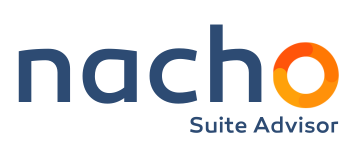NetSuite Role-Based Security: Protecting Your Data

In today’s digital landscape, data security is paramount for businesses of all sizes. As organizations increasingly rely on cloud-based solutions, the need for robust security measures becomes even more critical. NetSuite, a leading cloud-based Enterprise Resource Planning (ERP) system, offers a sophisticated role-based security model that helps protect sensitive data while ensuring that users have access to the information they need to perform their jobs effectively. This article explores the intricacies of NetSuite’s role-based security, its benefits, and best practices for implementation.
Understanding Role-Based Security in NetSuite
Role-based security is a method of restricting system access to authorized users based on their roles within an organization. In NetSuite, this model allows administrators to define roles that align with specific job functions, ensuring that users can only access the data and functionalities necessary for their responsibilities.
- Granular Access Control: Administrators can create custom roles with tailored permissions, allowing for precise control over what users can see and do within the system.
- Segregation of Duties: By assigning different roles to users, organizations can enforce segregation of duties, reducing the risk of fraud and errors.
- Audit Trails: NetSuite maintains detailed logs of user activities, enabling organizations to track changes and monitor compliance with internal policies and regulations.
Benefits of NetSuite Role-Based Security
Implementing role-based security in NetSuite offers numerous advantages that enhance both data protection and operational efficiency.
- Enhanced Data Protection: By limiting access to sensitive information, organizations can significantly reduce the risk of data breaches and unauthorized access.
- Improved Compliance: Many industries are subject to strict regulatory requirements. Role-based security helps organizations comply with regulations such as GDPR, HIPAA, and SOX by ensuring that only authorized personnel can access sensitive data.
- Increased Productivity: Users can focus on their specific tasks without being overwhelmed by irrelevant information, leading to improved efficiency and productivity.
Best Practices for Implementing Role-Based Security in NetSuite
To maximize the effectiveness of role-based security in NetSuite, organizations should follow these best practices:
- Conduct a Role Assessment: Evaluate existing roles and permissions to identify any gaps or overlaps. This assessment should involve key stakeholders from various departments to ensure that all perspectives are considered.
- Define Clear Role Descriptions: Create detailed descriptions for each role, outlining the specific responsibilities and access levels required. This clarity helps prevent confusion and ensures that users understand their permissions.
- Regularly Review and Update Roles: As business needs evolve, so should the roles and permissions within NetSuite. Regular reviews help maintain security and ensure that users have appropriate access.
- Utilize Custom Roles: Take advantage of NetSuite’s ability to create custom roles tailored to your organization’s unique needs. This flexibility allows for a more precise alignment of access with job functions.
Case Study: A Successful Implementation
A mid-sized manufacturing company recently implemented NetSuite’s role-based security to address concerns about data access and compliance. Prior to implementation, the company faced challenges with unauthorized access to sensitive financial data, leading to potential compliance risks.
By conducting a thorough role assessment and defining clear role descriptions, the company was able to create custom roles that aligned with its operational structure. As a result, the organization saw:
- A 40% reduction in unauthorized access incidents.
- Improved compliance with industry regulations.
- Enhanced employee productivity due to streamlined access to relevant information.
Conclusion
NetSuite’s role-based security is a powerful tool for organizations looking to protect their data while ensuring operational efficiency. By implementing granular access controls, organizations can enhance data protection, improve compliance, and increase productivity. Following best practices for role assessment, clear role definitions, and regular reviews will further strengthen security measures. As businesses continue to navigate the complexities of data security, leveraging NetSuite’s role-based security model will be essential for safeguarding sensitive information and maintaining trust with customers and stakeholders.
“`
